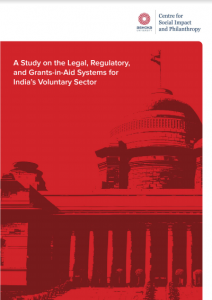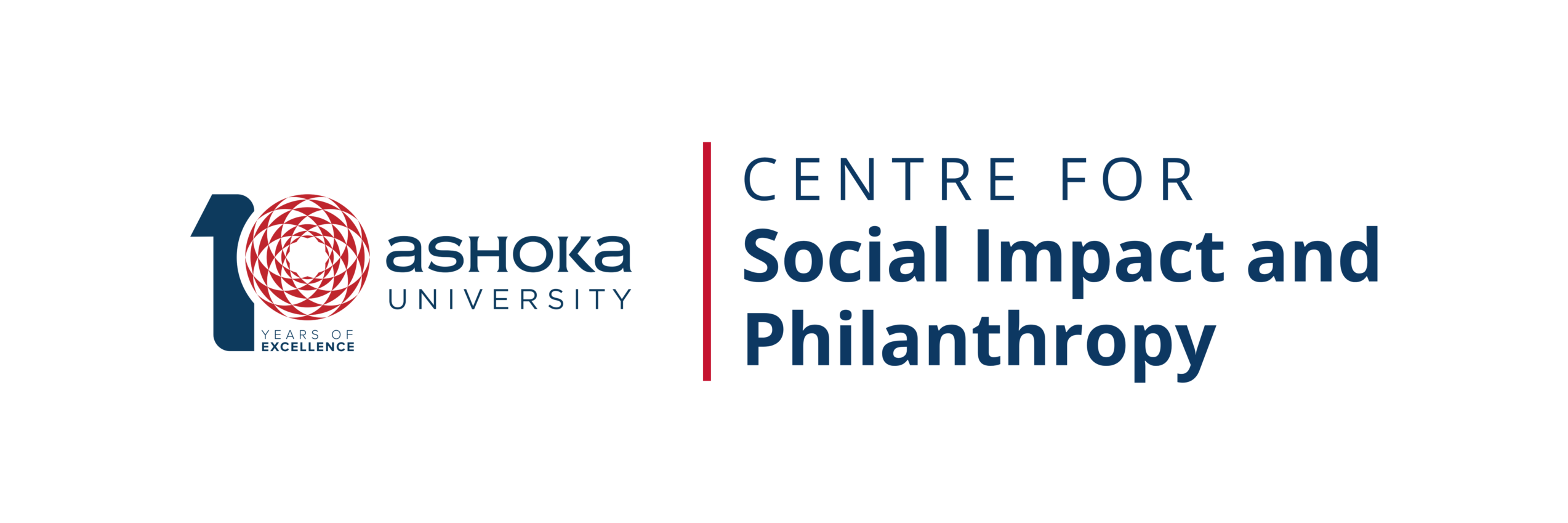Executive Summary: A Study on the Legal, Regulatory, and Grants-in-Aid Systems for India’s Voluntary Sector


 This study examines the legal and regulatory frameworks and government systems for governing and engaging with the voluntary sector across five focus areas namely, Registration, Taxation, Regulation, Grants-in-Aid and Consultative Planning, and Enabling Ecosystem. The study recommendations aim to make the legal and regulatory frameworks coherent and aligned with contemporary realities of the voluntary sector, the grants-in-aid systems transparent, and the consultative policy-making systems effective and efficient.
This study examines the legal and regulatory frameworks and government systems for governing and engaging with the voluntary sector across five focus areas namely, Registration, Taxation, Regulation, Grants-in-Aid and Consultative Planning, and Enabling Ecosystem. The study recommendations aim to make the legal and regulatory frameworks coherent and aligned with contemporary realities of the voluntary sector, the grants-in-aid systems transparent, and the consultative policy-making systems effective and efficient.
The study methodology involves an analysis of primary legal sources such as laws, statutes and policies, a review of secondary sources, and interviews and consultations with critical stakeholders. The objective of this approach is to triangulate and corroborate across primary and secondary data, the challenges, strengths and solutions emerging in each of the study focus areas. Secondary documents include articles, treatises, manuals and reports by government and non-government bodies and sector experts. Interviews and consultations were held with government authorities, sector experts, and voluntary organisation (VO) leaders at the national and state levels, across aspects of government- VO engagement such as regulation, policy-making, and grants-in-aid. State-level consultations were held in five states, i.e. Rajasthan, Maharashtra, Tamil Nadu, Odisha and Delhi, to map perspectives from diverse regions and levels of complexity across India.
A consultative and iterative approach was followed in developing the final report. Inputs from sector experts, VO leaders and NITI Aayog members across key milestones of the project were gathered. The secondary research findings were assessed by a panel of sector experts and the preliminary key insights and recommendations after the first round of data analysis were discussed at a national consultation among experts and VO leaders.
The study recommends modernising legal and regulatory frameworks with the overarching approach of facilitating rather than controlling the voluntary sector to better serve citizens. Technological solutions to increase efficiency and effectiveness, aligning processes to reflect the diversity in size and complexity of organisations in the sector, focusing on capacity-building and collaborating with the sector in the planning and implementation of the development agenda are some key underlying ideas of the proposed recommendations. Six key recommended action points emerged across the five focus areas of this study, i.e. Registration, Taxation, Regulation, Grants-in-Aid and Consultative Planning, and Enabling Ecosystem.
The report consists of six sections. The introduction seeks to provide a brief overview of India’s voluntary sector. Study rationale and methodology are discussed in detail in Section 1. Section 2 examines applicable laws and regulations as well as key issues and challenges voluntary organisations experience in ensuring compliance and submits related recommendations. Section 3 reviews the key areas of engagement between government and the voluntary sector such as grants-in-aid, and consultative policy planning, and presents the key issues, challenges and recommendations. Section 4 examines the necessity of creating an enabling environment for VOs, related challenges and recommendations for achieving the same. In the last section, Way Forward, a roadmap on implementing the recommendations and action points is discussed.
The report aims to inform government action, drive discussions among sector experts, and strengthen narratives around the voluntary sector.


